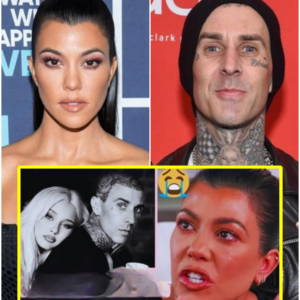Cat Williams vs. Cedric the Entertainer: The Joke Controversy Unpacked
In a recent clash that has stirred the comedy world, Cat Williams has publicly accused Cedric the Entertainer of stealing one of his jokes. The controversy began when Cat Williams appeared on Club Shay Shay, where he asserted that Cedric had lifted a joke from him. This claim has since sparked widespread debate among fans and comedians alike.

The joke in question involves a humorous take on car radios being too loud. Williams first showcased this joke during his performance on BET’s Comic View, where it was well-received and even became part of a commercial promoting the show. Cedric the Entertainer later used a similar joke in his set on Kings of Comedy, albeit with a twist—he replaced the car with a spaceship, drawing laughs from his audience with a different spin on the theme.
To understand the depth of the controversy, it’s crucial to examine both performances. Williams’ original joke revolves around the volume of car radios and the absurdity of not being able to hear anything when the music is turned up too high. He humorously describes how one might look if they were too engrossed in their music to notice their surroundings. In contrast, Cedric’s version, delivered as part of his closing set on Kings of Comedy, imagines a scenario where people drive spaceships as if they were old-school Cadillacs. While the premises of both jokes share a common thread—the exaggeration of vehicle-related absurdities—the execution and thematic elements diverge significantly.
Cedric’s response to the allegations has been firm. He maintains that the joke in question is not unique to Williams and that it has roots in his own comedic history, dating back over 30 years. Cedric argues that the joke is part of a broader comedic tradition and that many comedians have tackled similar themes in their routines. He acknowledges that jokes often have overlapping themes and premises but insists that his version of the joke is distinct and deeply tied to his personal comedic style.
Cedric’s defense includes a claim that his joke predates Williams’ performances. He recalls performing similar material during the Kings of Comedy tour in 1999, asserting that his joke has been part of his repertoire for years. According to Cedric, the joke’s thematic elements are based on his experiences and observations, which predate Williams’ exposure to the comedy scene.
On the other hand, Williams’ perspective highlights a more personal and emotional response. He feels that Cedric’s use of his joke not only undermines his originality but also represents a larger issue of respect and recognition in the comedy industry. Williams emphasizes that the joke was one of his best and most significant pieces, and its appropriation by Cedric feels like a betrayal.
This feud brings to light a broader discussion about joke ownership and originality in comedy. Comedians often draw from similar sources of inspiration and share overlapping themes in their routines. However, the line between influence and theft can be blurry, especially when a joke resonates deeply with its audience.
In the world of comedy, accusations of joke theft are not uncommon. Many comedians have faced similar allegations, leading to debates about the nature of creativity and the ownership of comedic material. The Cat Williams-Cedric the Entertainer controversy adds to this ongoing dialogue, raising questions about how comedians can protect their work while acknowledging the shared nature of comedic inspiration.
As the debate continues, both comedians have maintained their stances. Cedric remains confident in the originality of his material and his long-standing career in comedy, while Williams continues to assert his claim, feeling that his contribution to the joke should be recognized. Whether or not this controversy will be resolved to the satisfaction of all parties remains to be seen.
For now, fans and industry observers are left to ponder the implications of this dispute, reflecting on the complexities of comedic originality and the fine line between homage and infringement.
News
(B) Travis Barker MISSED when Kourtney Kardashian returned home drunk after Kardashians party. (VIDEO)…
Courtney Kardashian made headlines just seven weeks after giving birth when she decided to attend the annual Kardashian Jenner Christmas party sans pants. Despite recently welcoming her fourth child, Rocky, with boyfriend Travis Barker, Courtney seemed anything but tired as…
(B) Kourtney Kardashian Shocking Revelation on Why Her Relationship with Travis Barker Ended. (VIDEO)…
In the public eye, Travis Barker and Courtney Kardashian’s relationship was once perceived as an unbreakable union, filled with passion and devotion. However, recent revelations paint a vastly different picture, revealing the underlying turmoil that ultimately led to its demise….
(B) Kourtney Kardashian SECRET XTAPE With Minor Justin Bieber REVIEWED by The Feds. (VIDEO)
The recent discovery of a video purportedly featuring Courtney Kardashian and Justin Bieber has ignited a firestorm within the entertainment industry, prompting intense speculation about its potential ramifications. This revelation, coupled with reports of a raid on Diddy’s home, has…
(B) EXTREMELY SHOCKING: Kris Jenner Lied About DNA Test To Khloe Kardashian As O.J. Simpson Could Be Her Father. (VIDEO)..
In a moment etched into the memories of internet users, Chris Jenner once orchestrated a dramatic DNA test to dispel rumors surrounding Khloe Kardashian’s paternity. Speculations swirled, stemming from Jenner’s revelations in her memoir “Chris Jenner and All Things Kardashian,”…
(B) Kourtney Kardashian finally shows proof her son Reign Disick is actually Justin Bieber’s son. (VIDEO)..
Courtney Kardashian recently embarked on an exciting escapade to Australia and New Zealand with her husband, Travis Barker, for his tour. However, it was their youngest son, Rain, who stole the spotlight during their adventures. With his mischievous antics and…
(B) NEWS HOT; Travis Barker Found Evidence of Kourtney Shared Baby With Justin Bieber (video)…
The rumor mill surrounding Justin Bieber and the Kardashian family has been churning for quite some time, igniting speculation about his connections with various members. While the details are murky and often sensationalized, let’s delve into the complexities of these…
End of content
No more pages to load











